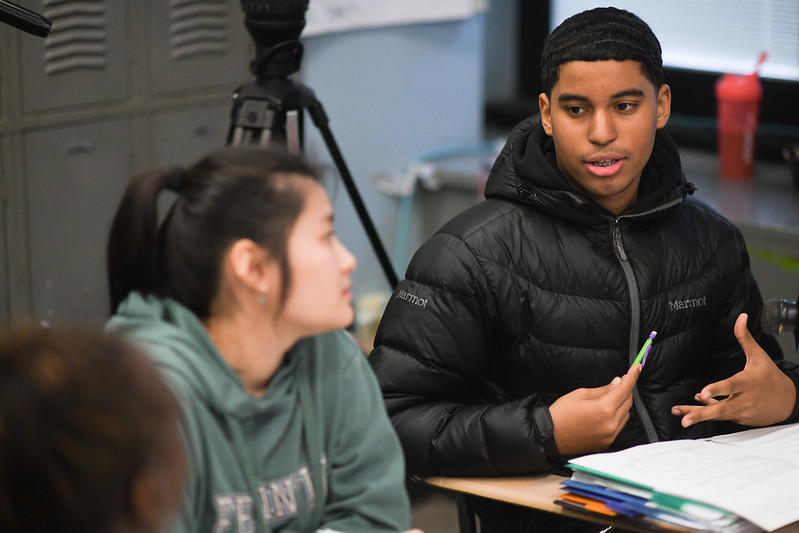
NYC Youth (photo: Michael Appleton/Mayoral Photography Office)
Many industries are struggling with their workforce since the pandemic, and the children’s mental health workforce is no different. Capacity and workforce retention have always been a challenge in the human services field, with providers expected to do more with less and families facing increasingly longer backlogs and wait times for appointments.
Statistics show that 1 in 6 U.S. youth experience a mental health condition each year, but only half get treatment. In addition, 59.6% of youth with major depression do not receive any treatment. In the Bronx, where our organization does much of its work, the three top diagnoses for program participants ages 8 to 17 are attention deficit hyperactivity disorder (ADHD), depressive disorder, and disruptive/oppositional disorder. These three make up over 60% of the overall primary diagnoses for those youth in the borough.
At Astor Services for Children & Families, over 50% of Bronx program participants identify as Hispanic. This means that besides the need for enhanced salaries to retain and attract competent staff, we also need to provide culturally and linguistically sensitive services.
Agencies like ours are working miracles to recruit and retain talented employees but are having a tough time competing with city agencies like the Department of Education and for-profit competitors (some even located outside NY), that in some cases can offer twice the salary and benefits. Remote employment, COVID-19 health concerns and other unprecedented back-to-work factors are further complicating matters of employee retention and satisfaction. Astor and local agencies cannot compete at this level.
To turn around this current trend in underemployment, public investments must be made. We also need to allow employers sustainable reimbursement rates to be able to compete with larger entities and providers.
Expanding funding and reimbursements for outpatient and school-based health clinics will enable us to reach more clients and families and allow us to partner with and integrate mental health within school buildings through a hybrid format (both in-person and tele-health) as needed by clients and staff. We must increase the rates for residential treatment facilities and raise tuition rates for non-public schools that serve children with disabilities to create parity within the industry and across sectors.
Considering the underserved and underrepresented populations that we provide services to, Astor is seeking to expand and reinvest in its bilingual Spanish workforce that will enable the organization to hire Spanish-speaking clinicians and non-clinical staff, but also to provide the right professional development opportunities to our current staff so that we can create an internal language bank to provide the best service and support possible.
I remain optimistic that with public awareness, we can secure increased funding to continue to further develop a multicultural mental health workforce that will provide the vital services for our most vulnerable children and families. It should be everyone’s imperative.
***
Yvette Bairan is CEO of Astor Services for Children & Families a nonprofit organization that provides children’s mental health services, child welfare services and early childhood development services in the Bronx and Hudson Valley, New York. On Twitter @AstorServices.
***
Have an op-ed idea or submission for Gotham Gazette? Email This email address is being protected from spambots. You need JavaScript enabled to view it.